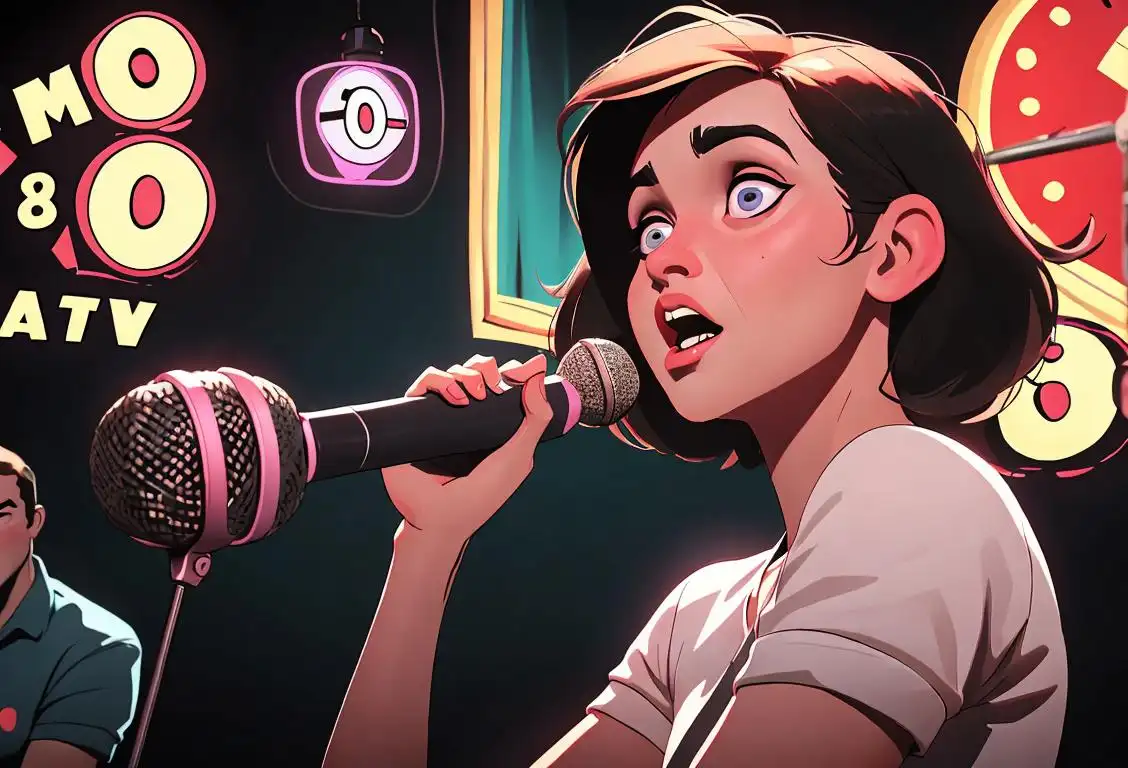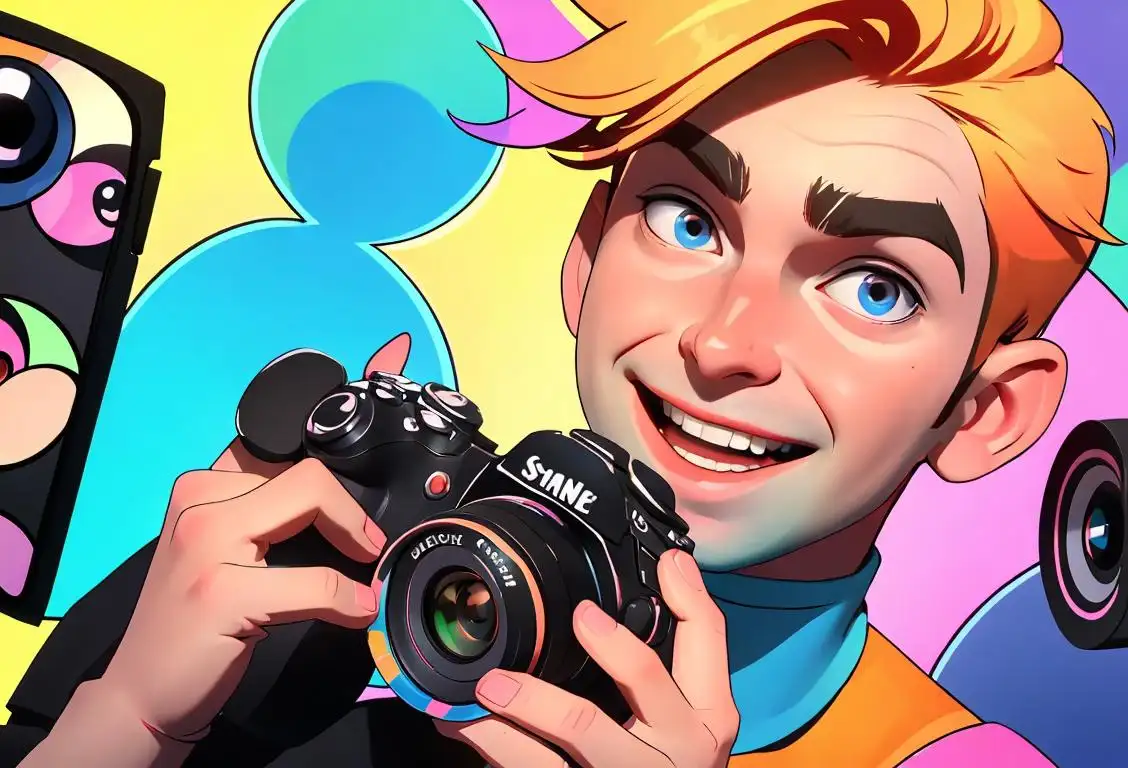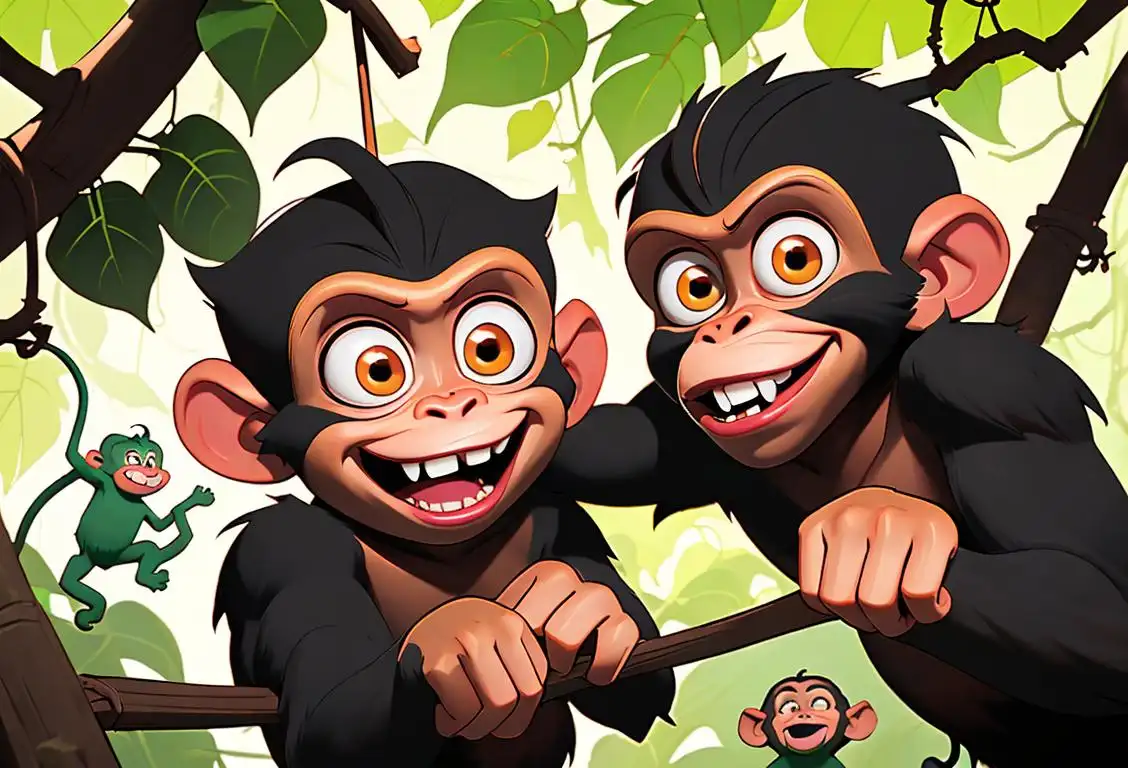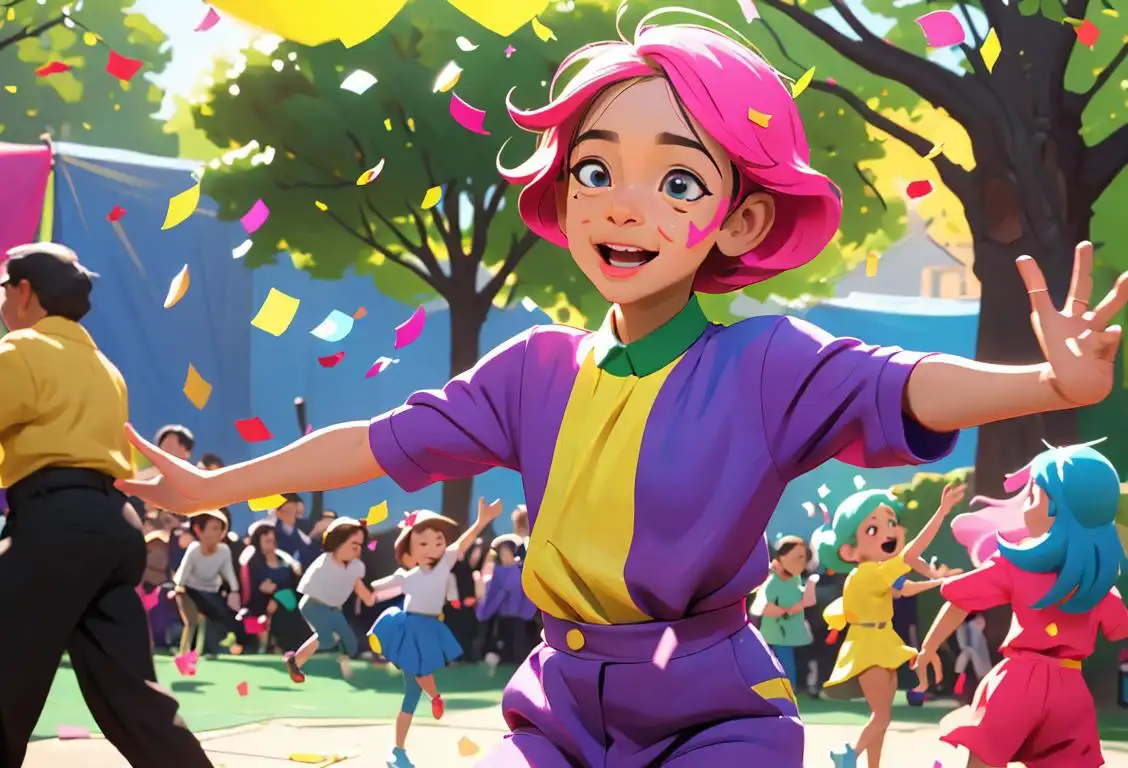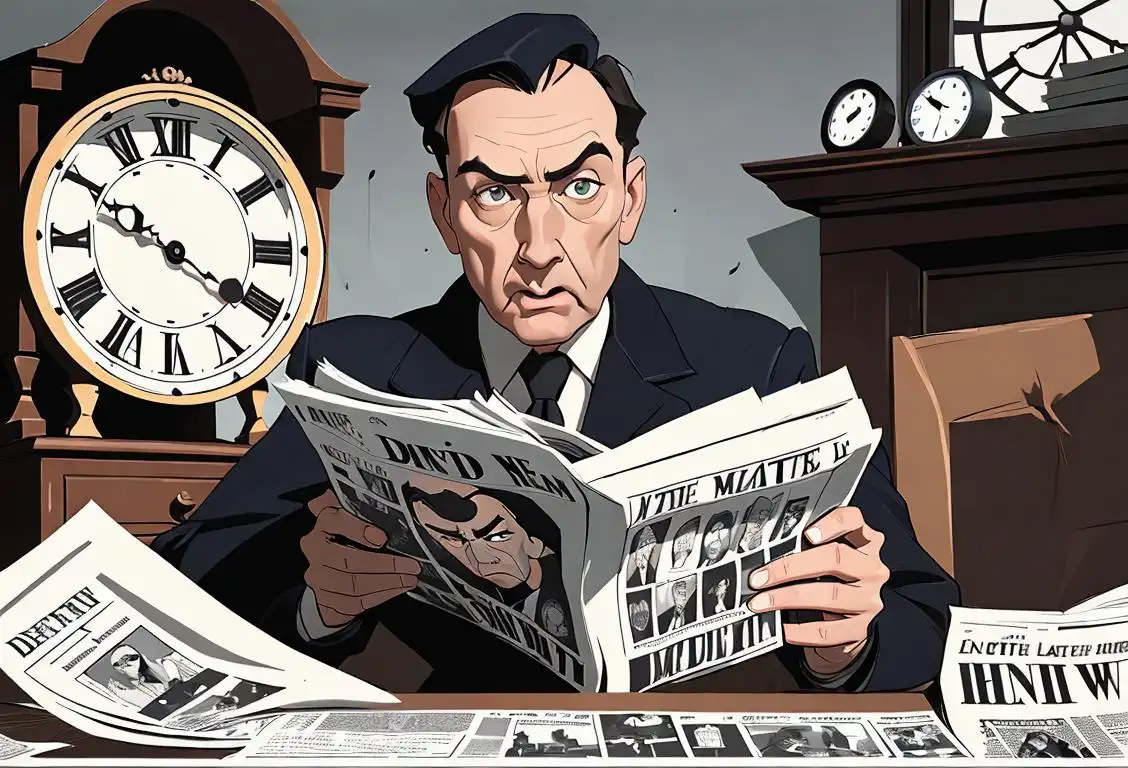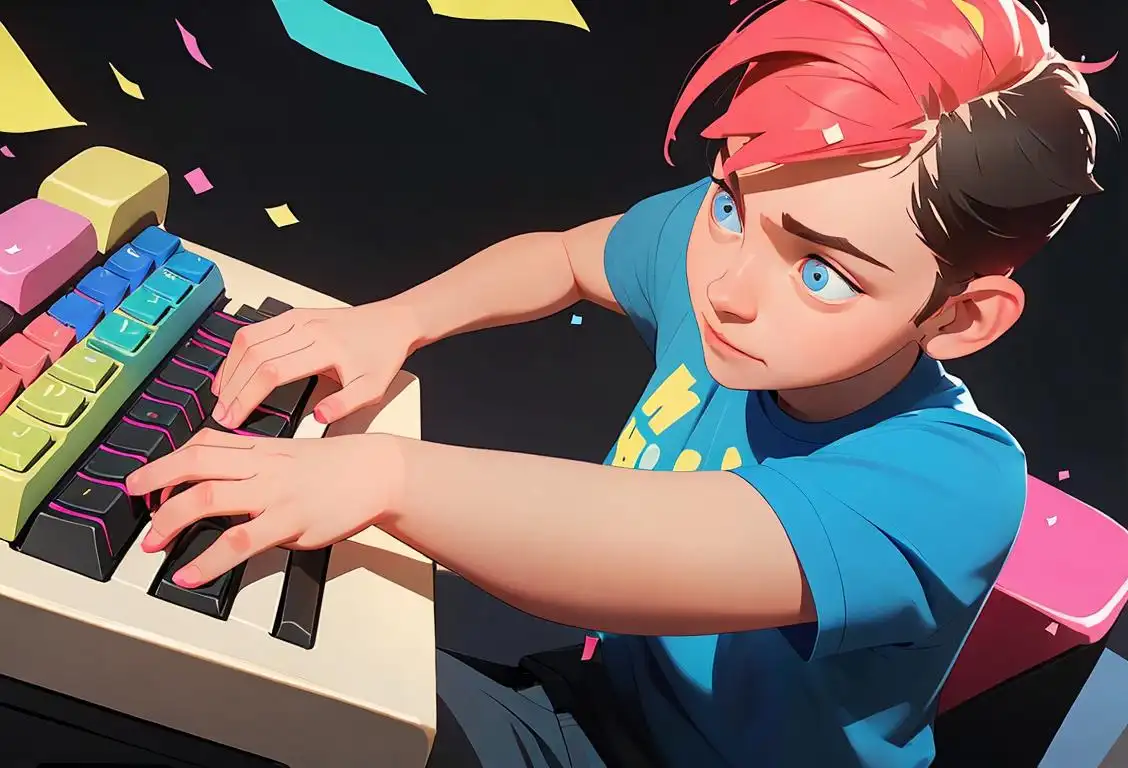National Troll Day
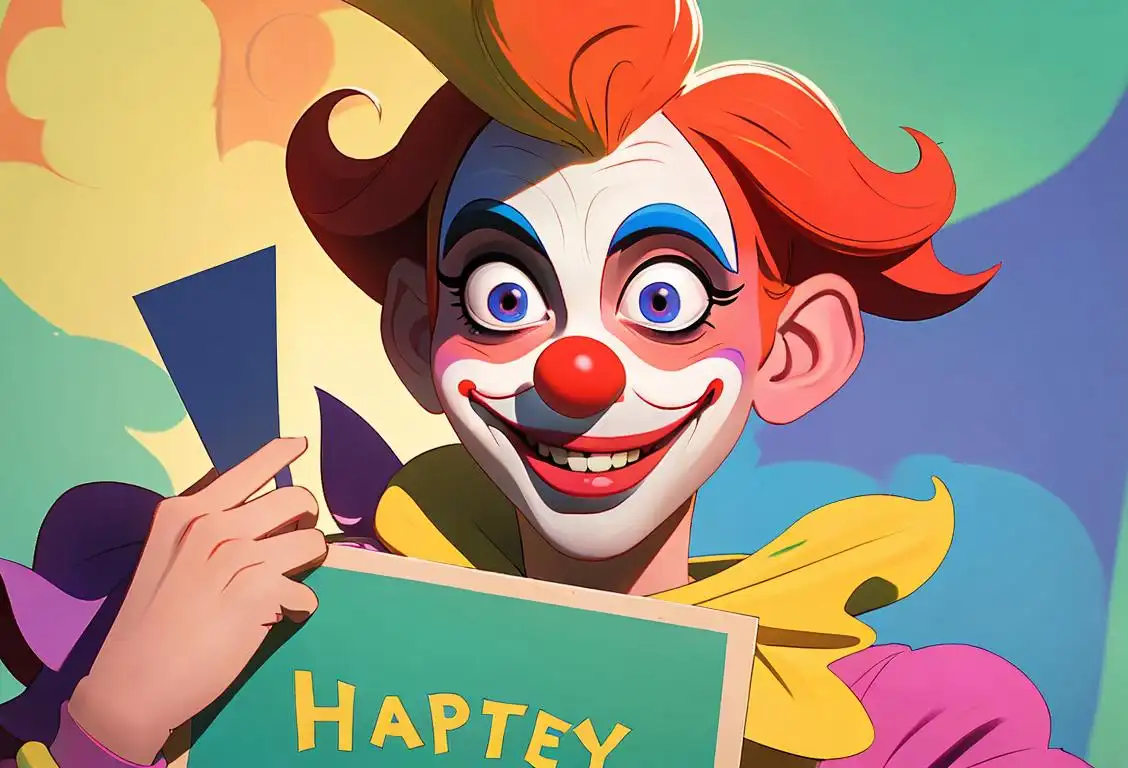
Welcome to the wonderful world of internet trolls! Today we're diving into the fascinating history of National Troll Day. Get ready for a wild ride filled with mischievous pranks, hilarious memes, and a whole lot of laughter.
When is Troll Day?
It's national troll day on the 1st April.
What is National Troll Day?
On this glorious day, internet trolls from all corners of the web unite to celebrate the art of online mischief. It's a day where you can release your inner trickster and let your creativity run wild. Whether it's playing harmless pranks, sharing funny memes, or pulling jokes on your friends, National Troll Day is all about spreading laughter and brightening up the virtual world.
A Brief History
The origins of National Troll Day can be traced back to the early days of the internet. As soon as people started connecting online, there were those mischievous souls who found joy in messing with others. Trolling, in its various forms, quickly became a beloved pastime.
The exact date of the first National Troll Day is a bit of a mystery. Some say it was born out of an epic prank that went viral, while others believe it was spontaneously created by a group of witty netizens who wanted to honor the art of trolling. Regardless of its origins, the celebration has gained momentum over the years and continues to be a beloved occasion for internet enthusiasts.
How to Celebrate
Looking to embrace your inner troll on this special day? We've got you covered with some fun ideas:
- Share hilarious memes: Spread laughter across the internet by sharing your favorite memes. Whether it's a clever caption or a perfectly timed photo, memes are a surefire way to get people chuckling.
- Play harmless pranks: Pulling a prank or two on your friends can make for a memorable National Troll Day. Just remember to keep it lighthearted and harmless – the goal is to bring smiles, not tears!
- Engage in friendly banter: Trolling doesn't always have to be mean-spirited. Engage in playful banter with your online pals and spark some laughter along the way.
Did You Know?
Did you know that the term 'troll' actually originated from Norse mythology? In ancient folklore, trolls were mischievous creatures who lived in caves or mountains, often causing trouble for humans. The internet trolls of today may not be mythical beings, but they certainly share a similar mischievous spirit!
History behind the term 'Troll'
1992
The emergence of the term 'troll'
The term 'troll' was first coined in 1992 on Usenet, an early internet discussion system. It was used to describe a person who intentionally disrupts online communities, often by posting inflammatory and off-topic messages with the aim of provoking emotional responses from others. The term was derived from the mythical creature 'troll', known for its mischievous and disruptive behavior.
1980
The Birth of Internet Trolling
The term 'troll' was first coined in the early 1980s on Usenet, an early online discussion forum. The term referred to users who would purposefully disrupt conversations and elicit emotional responses from other users. Trolling was seen as a form of internet mischief, often characterized by provocative or inflammatory comments.
1993
Troll as a verb
In 1993, the term 'troll' started being used as a verb, referring to the act of posting provocative messages to provoke or annoy others online. This usage cemented the concept of trolling as a deliberate and antagonistic activity in online communities.
1990
The Evolution of Troll Behavior
In the 1990s, trolling began to evolve, becoming more targeted and mean-spirited. This shift was partly driven by the anonymity provided by the internet, allowing trolls to engage in harmful behavior without fear of repercussions. Trolls started intentionally spreading false information, harassing individuals, and derailing discussions with unrelated or offensive content.
2000
Troll as a noun
By the year 2000, 'troll' had also become widely recognized as a noun, referring to a person who engages in trolling behavior. The term gained popularity as the internet grew and more people began participating in online discussions, experiencing the disruptive actions of trolls.
2003
Origin of 'Trolling' as a Term for Online Behavior
In 2003, Jennifer Golbeck, a social media researcher, published a paper that helped define trolling as a term for online behavior. She described trolls as individuals who 'post messages to disrupt conversations or incite others, generally by posting inflammatory, extraneous or off-topic messages in an online community.' This academic exploration marked a step towards recognizing trolling as a distinctive online phenomenon.
2003
Evolution of trolling tactics
By 2003, trolls had developed various tactics to provoke and manipulate online communities. They frequently used anonymity to their advantage, creating multiple accounts to amplify their disruptive impact. Additionally, trolls started targeting specific individuals, known as 'flaming', and deliberately spreading false information, sowing confusion and discord.
2008
Mainstream Awareness and Popularization
With the rise of social media platforms like Facebook and Twitter, trolling gained wider recognition in popular culture. The term became more commonly used to describe online harassment, cyberbullying, and deliberately provocative behavior. Media outlets started reporting on high-profile trolling incidents, generating public awareness and concern about the impact of trolls on the internet community.
2010
Trolls and social media
With the rise of social media platforms, trolling expanded its reach and influence. Trolls found new avenues to spread their disruptive behavior and exploit the algorithms and features of these platforms. They would intentionally target public figures, provoke arguments, and generate controversy to increase their online presence and gain attention.
2012
The Meme-Fueled Troll Culture
By 2012, trolls embraced meme culture and imageboard websites like 4chan became breeding grounds for anonymous trolling. Memes such as 'Rickrolling' and 'Trollface' became iconic symbols of online mischief. This period solidified the image of trolls as internet tricksters, capable of creating viral pranks and causing widespread disruption to online communities.
Present
Countering trolling behavior
As trolling continues to be an issue in online spaces, there has been a growing focus on countering its negative impact. Online platforms have implemented stricter rules and moderation systems to combat trolling and protect users from harassment. Additionally, awareness campaigns and educational efforts aim to promote digital citizenship and encourage responsible online behavior.
Present Day
Trolling as a Persistent Internet Phenomenon
In the present day, trolling continues to be prevalent on various online platforms. Trolls often exploit the anonymity and reach of the internet to propagate hate speech, cyberbullying, and disinformation. Despite efforts to combat trolling, it remains a challenge for online communities to maintain civil discourse while preserving freedom of expression.
Did you know?
Did you know that the term 'troll' actually originated from Norse mythology?Tagged
fun memes internetFirst identified
13th March 2015Most mentioned on
1st April 2021Total mentions
367Other days
Fuck Christopher Columbus Day
Mock Tim Wilson Day
Shane Dawson Day
Monkie Monky Day
Lil Sas Day
Eat Ya Girls Ass Day
Tfw No Gf Day
Bofa Day
Lockdown Is Briefed To Certain Right Wing Newspapers Late On A Day
Kevo Day
